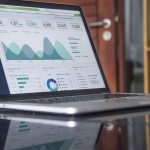The science of data research holds more weight over your company's effectiveness than one might generally expect. In fact, comprehensive sets of data and analytic information directly measure the performance of a business, and, therefore, future success depends heavily on a business's analytic metrics. Today, data is measured differently than it formerly had been within the … [Read more...] about How to Correctly Analyze Your Data to Ensure Company Efficiency
Big Data
Learn everything you need to know about big data. Find out how companies are using this revolutionary technology and what it means for your business strategy.
How Big Data Can Unseat Big Players in the Stock Market
Have you heard of Fibonacci trading? It's an investment strategy based on the Fibonacci sequence. A stock trader who favors the Fibonacci ratios ” a high volatility or low volatility Fibonacci trader ” will sell or hold their position based on the ratios. The interesting thing about this strategy is the way in which it mirrors nature, which is an anomaly. For whatever reason, … [Read more...] about How Big Data Can Unseat Big Players in the Stock Market
How Serverless Will Facilitate the Growth of Big Data Applications?
When it comes to designing the big data framework within the organization, serverless computing is coming off as a perfect solution. Setting up a dedicated server to facilitate your custom requirements is history now. To deal with the complex analytics workload, organization are often re-architecting their IT infrastructure. Moreover, the popular buzzword of pay as you go and … [Read more...] about How Serverless Will Facilitate the Growth of Big Data Applications?
How To Use Big Data For Social Media Optimization
Everybody understands how crucially important social media is to contemporary success, but that doesn't mean that every business owner knows how to effectively use big data to optimize their performance on today's biggest platforms. Indeed, modern social media optimization is a hectic and confusing business that frustrates many who get involved without doing their homework well … [Read more...] about How To Use Big Data For Social Media Optimization
3 Key Tech Trends to Watch Out For In 2019
2019 looks to be the year of using smarter technology in a smarter way. Three key trends ” artificial intelligence systems becoming a serious component in enterprise tools, custom hardware breaking out for special use-cases, and a rethink on data science and its utility ” will all combine into a common theme. In recent years, we've seen all manner of jaw-dropping technology, … [Read more...] about 3 Key Tech Trends to Watch Out For In 2019
What is big data?
Big data is a term that refers to the massive amount of digital data created and shared every day. Big data can transform how we live, work, and communicate. It can be used to improve everything from public health and urban planning to business and marketing.
Big data is also changing the way we think about privacy and security. The volume, velocity, and variety of big data present challenges and opportunities for organizations and individuals. Regardless, big data is here to stay, and its impact will only continue to grow in the years to come.
What is big data analytics?
Big data analytics is the process of turning large, complex data sets into actionable insights. Businesses use various analytical tools and techniques, including machine learning and statistical analysis, to do this.
Big data analytics can be used to improve decision-making in areas like marketing, operations, and customer service. It can also be used to identify new business opportunities and optimize existing processes. With the help of big data analysis, businesses can gain a competitive edge by using their data better.
Want to learn more about big data? Datafloq has courses available. Contact us to get started.
When was big data introduced?
The term big data was coined in the 1990s, with some giving credit to John Mashey for popularizing the term. However, the concept of big data has been around for much longer.
Where does big data come from?
In the early days of computing, scientists and businesses began to realize that the amount of data being generated was increasing exponentially. As a result, they began to develop new methods for storing and processing data.
Over time, these methods have become increasingly sophisticated and have played a key role in enabling businesses to make sense of vast amounts of information. Today, big data is used in various industries, from retail to healthcare, and its importance is only likely to grow in the years to come.
What are examples of big data?
One of the most common examples of big data is social media data. With over 2 billion active users, Facebook generates a huge amount of data every day. This includes information on user interactions, posts, and even location data. Analyzing this data can help companies better understand their customers and target their marketing efforts.
Another example of big data is GPS signals. These signals are constantly being generated by devices like cell phones and fitness trackers. When combined with other data sets, GPS signals can be used to provide insights into everything from traffic patterns to human behavior. Finally, weather patterns are another type of big data set. By tracking these patterns over time, scientists can better understand the impact of climate change and develop strategies for mitigating its effects.
How do companies use big data?
Companies use big data in marketing, product development, and customer service. By analyzing large data sets, businesses can identify patterns and trends that would be otherwise difficult to spot. For example, a company might use big data to track customer behavior patterns to improve its marketing efforts.
Alternatively, a company might use big data to improve its products by identifying areas where customers are most likely to experience problems. For instance, big data can be used to improve customer service by finding pain points in the customer journey. Ultimately, big data provides companies with a valuable tool for gaining insights into their business operations.






